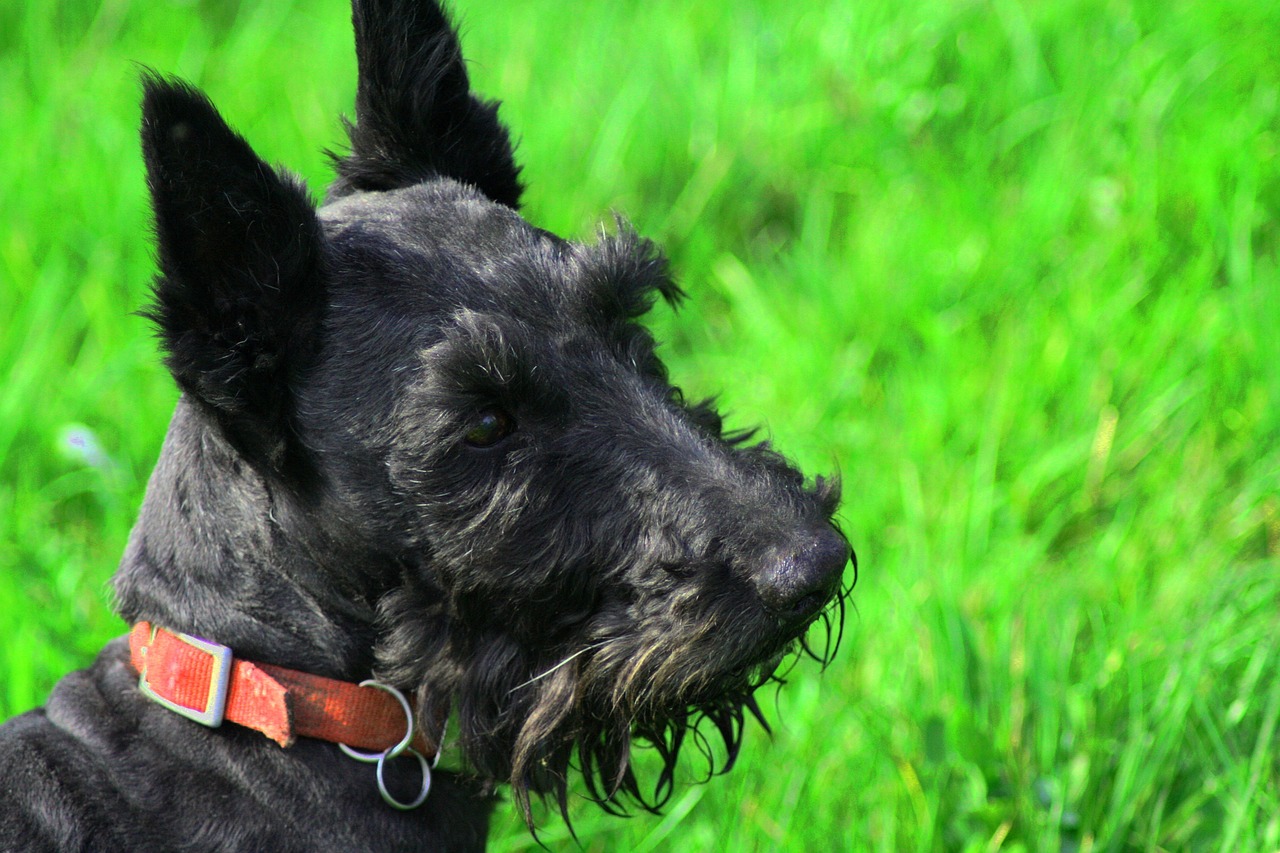Scottish Terriers
Showing all 4 results
Shelter Dog Meal Donation Count:
Showing all 4 results
Scottish Terriers are unique and charming dogs, known for their distinctive appearance and bold personality. They make great companions for the right owner who understands their specific needs and characteristics.
The Scottish Terrier is a breed known for its robust and wiry coat, which requires regular grooming. Despite their small size, they exhibit a large presence, often described as a big dog in a small dog’s body. Their unique look and personality have made them a favorite, even appearing as mascots and in various forms of media.

Originally bred in Scotland for hunting and vermin control, the Scottish Terrier’s exact origins are somewhat obscured by history. They were grouped with other terriers of Scotland until the 19th century when specific breeds began to be identified. The Scottie we know today was bred to be a formidable hunter of badgers and foxes.

Common Health Issues: Scotties are prone to certain health conditions, including Scottie Cramp, Von Willebrand's disease, and specific types of cancers. Veterinary Care: Regular check-ups are essential for early detection and management of health issues.
Coat Care: Their wiry coat needs regular brushing and professional grooming every few months. Nail Trimming: Regular nail trims are required to prevent discomfort and mobility issues.
Activity Level: Moderate; daily walks and play sessions are sufficient. Mental Stimulation: They enjoy challenging games and activities that stimulate their minds.
Trainability: Intelligent but can be stubborn; consistent, positive reinforcement methods work best. Socialization: Early and ongoing socialization is crucial for a well-adjusted dog.
Diet: A balanced diet suitable for their age, size, and activity level. Feeding Schedule: Consistent feeding times help with digestion and weight management.
The Scottish Terrier, with its distinct personality and appearance, makes a wonderful companion for those who appreciate its unique characteristics. Proper care, training, and love will ensure a happy and healthy life for this dignified and charming breed.
Scottish Terriers are generally hardy but can be predisposed to certain health issues. Awareness and appropriate testing can help in managing their health effectively.
Ensuring that your Scottish Terrier receives these tests and follows a routine of preventive care can significantly help in maintaining their health and well-being. Always consult with your veterinarian for the best care plan for your pet.
The iHeartDogs Free Rx Discount Card Program is a pet prescription discount card that can help you save money on your furry friend’s medications. The card is free to sign up for, and you can use it at participating pharmacies nationwide. To use the free program, simply show the card to your pharmacist when you pick up your pet’s prescription. The pharmacist will then scan the card, and you will receive a discount on the price of the medication.LEARN MORE
Caring for a Scottish Terrier, like any dog, involves various expenses. The annual cost can vary depending on factors like your location, the dog’s health, and the level of care you choose. Here’s a breakdown of typical expenses:
Total Estimated Annual Cost:
$2750 - $8280
It's important to note that these figures are estimates and can vary. Also, the first year of owning a dog can be more expensive due to one-time costs like spaying/neutering, initial vaccinations, and training. Regular budgeting for your dog's needs and an emergency fund for unforeseen costs are essential for responsible pet ownership.